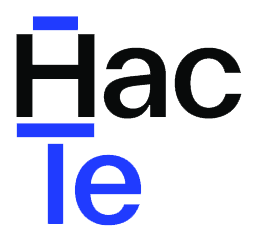Call for contributions: Exploring the intersections of Arts, Science, Technology and Society as catalysts for change
Exploring the intersections of Arts, Science, Technology and Society as catalysts for change
A S+T+ARTS Symposium to reflect on impact and shape the future
29th & 30th October 2024 – Universitat Oberta de Catalunya (UOC), Barcelona
Over the past seven decades, the discourse on the dialogues and intersections between the arts and sciences has undergone a profound transformation since the inception of the “two cultures” debate. Today, numerous publications, institutions, organisations, academic associations, and funding programmes, such as S+T+ARTS in the European context, testify to the burgeoning emphasis on transdisciplinarity. However, amidst this progress, persistent questions and concerns remain, particularly with regard to the dissemination and impact assessment of projects within these transdisciplinary fields. A key challenge is to develop effective methods for observing, monitoring, evaluating, and identifying key variables illuminating project findings and respecting their inherent complexity. This symposium addresses these needs by convening an international dialogue that spans academic discourse and practical applications. By fostering collaboration and knowledge exchange, we aim to explore new strategies for accurately addressing, monitoring, and measuring the multiple impacts of projects situated at the intersection of the arts, technologies, and sciences, within the global challenges of contemporary society.
Exploring the intersections of Arts, Science, Technology and Society as catalysts for change is a symposium organised within the framework of S+T+ARTS in the City project, runned by six S+T+ARTS Regional Centres: GLUON, HacTe, Ars Electronica, Inova+, Kersnikova Institute and MEET, Digital Culture Centre.
CALL FOR CONTRIBUTIONS
This symposium aims to delve into the emergence, evolution, and diversification of the ASTS (Art, Science, Technology, and Society) intersectional field, seeking to deepen our understanding through exploration of four key themes organised in four panels:
Towards Hybrid Research Scenarios in ASTS
-Exploring innovative methodologies and frameworks to facilitate profound research within the arts, emphasising the inherent values at the intersection of art, science, technology, and society.
-Scrutinising past, present, and emerging ASTS projects and their impact on shaping the field.
Confronting Values and Measures in ASTS projects and policies
-Investigating indicators and metrics to assess the impact and value of ASTS projects, initiatives, institutions and industries.
-Engaging in discussions about the challenges and opportunities associated with measuring the multifaceted contributions of ASTS to society.
-Studying the transformative role of historical and current policies in nurturing the interdisciplinary intersection of art, science, technology, and society (ASTS).
Embracing social, ethical and legal challenges in ASTS
-Presenting case studies and projects led by artists, scientists, and technologists aimed at addressing pressing social challenges.
-Encouraging submissions that delve into the potential of ASTS to foster community development and sustainable innovation.Examining emerging social trends and models that promise to shape the future of ASTS while addressing ethical issues and societal challenges.
-Current debates around intellectual property rights, freedom of expression vs. censorship, ethical considerations like data privacy, access and equity, or environmental impact.
Epistemologies and Methodologies for the ASTS practices
-Examining the epistemological foundations that underpin ASTS research and practice and the way it delves into the very nature of knowledge production.
-Discussing methodologies employed in ASTS research and their implications for interdisciplinary collaboration. Processes, perspectives and dynamics that have proven to be helpful.
-Debating challenges and proposing solutions for integrating distinct disciplinary methods within ASTS projects.
PARTICIPATION FORMATS
- Presentation: A live talk where you present your research/project findings to the audience. You can use slides with visuals and key points to guide your talk, allowing time for questions at the end.
- Poster: A visually appealing display board showcasing your research/project on a single sheet. It condenses key information with text, images, and graphics to grab attention and spark conversation during poster sessions.
- Paper: A formal written document detailing your research methodology, findings, and analysis. It’s a more in-depth exploration compared to a presentation or poster, submitted for peer review before publication to Artnodes journal as a conference proceedings.
SUBMISSION GUIDELINES – KEY DATES
Publication of the Call for Contributions: 6th of May 2024.
Abstracts (300 words) should be submitted by 14th of June 2024.
Notification of Acceptance will be sent by July 2024.
Submissions should follow Chicago Style.
Please submit your proposals to the ScienceConf Portal
A selection of the presentations will be accepted to contribute in the paper format in a Special Issue of Artnodes Journal to be published in 2025.
STEERING COMITTEE
- Tere Badia, Anna Pinotti HacTe – Barcelona’s Hub of Art, Science and Technology
- Pau Alsina, Andrés Eduardo Burbano Universitat Oberta de Catalunya (UOC)
- Aurélie Delater, Ramona Van Gansbeke GLUON
- Lisa Shchegolkova Ars Electronica
- Rosanna Dinuzzo MEET Digital Culture Center
- Rita Sousa INOVA+
- Jana Putrle Kersnikova Institute
SCIENTIFIC COMITTEE (list to be updated in the coming days): Camille BAKER (Royal College of Art, UK); Nuno CAMARNEIRO (Universidade Católica Portuguesa, PT);Manuel CIRAUQUI (Fundació EINA, ES); Michele COLETTI (Grenoble École de Management, FR); AndresCOLMENARES (Elisava, ES); Alexandra GARATZOGIANNI (Leibniz Information Center for Science &Technology & Leibniz University Hannover, AT); María Antonia GONZÁLEZ VALERIO (Universidad NacionalAutónoma de México, ME); Vanessa HANNESSCHLÄGER (Ars Electronica, AT); Inge HINTERWALDNER(Karlsruhe Institute of Technology, DE); Dalila HONORATO (Ionian University, GR); Lydia KALLIPOLITI (TheCooper Union, US); Gwendolin KREMER (TUD Dresden University of Technology, DE); GunalanNADARAJAN (University of Michigan, US); Manuela NAVEAU (University of Arts Linz, AT); Pedro REIS(Universidade Lusíada, PT); Everardo REYES (Université Paris 8 Vincennes-Saint-Denis, FR); ChrisSALTER (Zurich University of the Arts, CH); Carles SORA (Centre de la Imatge i la Tecnologia Multimèdia –Universitat Politècnica de Catalunya, ES)
PROJECT MANAGER: Anna Pinotti Blanch, HacTe (projectes@hactebcn.org)
LOCATION
Universitat Oberta de Catalunya (UOC)
S+T+ARTS in the City is co-funded by the European Union under grant agreement LC-01984766 under the STARTS – Science, Technology and Arts initiative of DG CONNECT. It is also supported by Generalitat de Catalunya.
HacTe is a member of Red ACTS.


